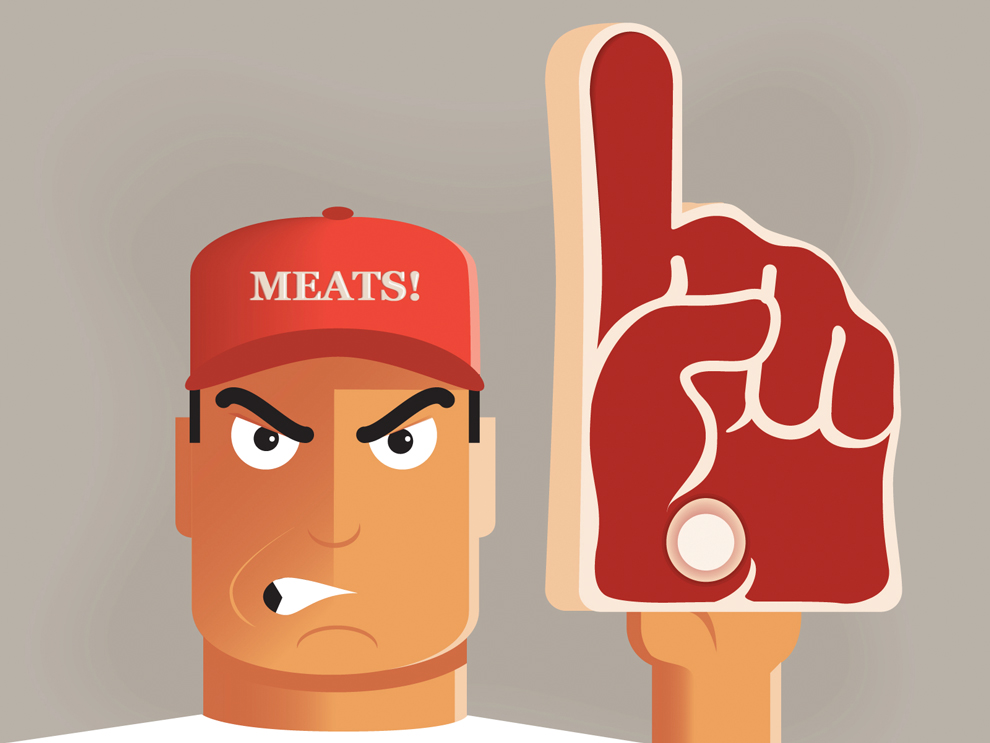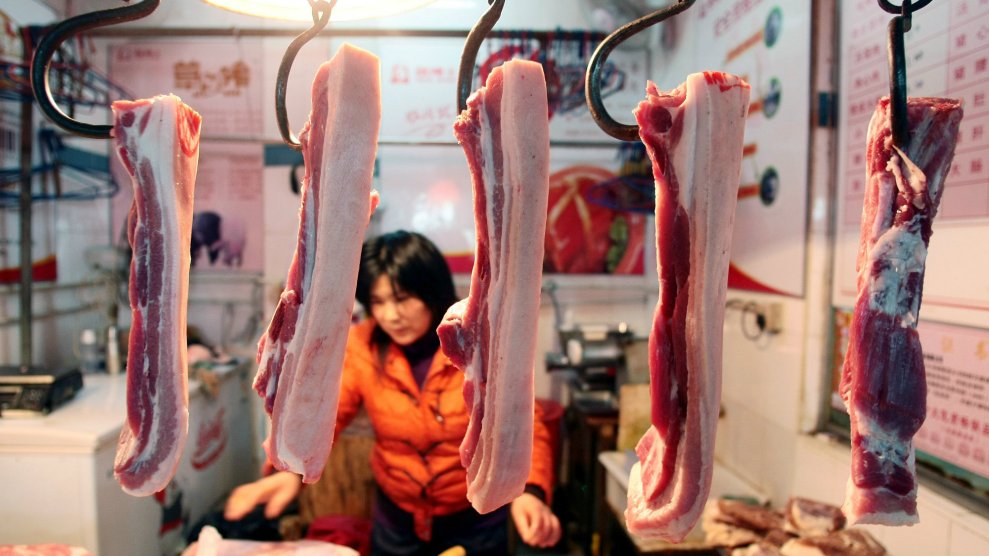
By the 3rd century, Chinese cooks had found that soy milk could be curdled to create a meat replacement known as tofu. Nearly two millennia later, the Gardenburger hit shelves, followed by the vegetarian’s answer to Thanksgiving: Tofurky. Now you can buy faux-blood-oozing patties with a texture eerily similar to the real thing. And lab-grown meat may show up in stores before you know it: Memphis Meats, a company trying to perfect beef and chicken from animal cells, counts billionaire Bill Gates and agriculture corporation Cargill as investors. Meanwhile, the environmental impacts of livestock are becoming clear: A major 2018 report by the Intergovernmental Panel on Climate Change blamed animal products for three-quarters of food-related greenhouse gas emissions.
Although only 6 percent of Americans say they’re vegetarian, around a quarter of consumers polled by Nielsen in 2017 said they wanted more plant-based proteins on the shelves. Retail sales of meat substitutes in the United States grew 30 percent from 2014 to 2016, and they are expected to rise by 74 percent over current levels by 2023, to about $2.5 billion, according to research firm Euromonitor International. While that’s still piddling compared with the $200 billion in products sold by US meat companies each year, the success of these substitutes appears to have come as a threat to livestock producers.
This is especially true in Missouri, where legislators enacted a new statute to limit how companies use the word “meat” on food labels or in advertisements. The law’s no joke: You can receive a $2,000 fine and spend up to a year in jail for using the word to describe something that’s “not derived from harvested production livestock or poultry.” (It’s unclear whether the law applies to the use of words like “burger” or “sausage” as well.)
A few months after the measure was signed in June, free-speech advocates and vegans teamed up to fight it: With help from the American Civil Liberties Union, Tofurky and the Good Food Institute, a nonprofit that advocates fake meat, sued Missouri for violating the First Amendment.
The statute’s champions say the law is meant to protect consumers from confusion. But ACLU attorney Tony Rothert is skeptical. “No one who gets a veggie burger and bites into it is surprised when it’s not slaughtered animal meat,” he says. Indeed, the state’s consumer protection bureau couldn’t find any complaints from people who had mistaken a meat alternative for the real deal.
Then there’s the question of whether the state can restrict the definition of meat. While the word is most often used to describe something akin to a sirloin or burger, it can also apply to the innards of a nut. (A parallel battle is playing out over the word “milk”—the Food and Drug Administration has proposed banning the term for nondairy beverages.)
The ACLU believes that when the government legislates language, there must be a good reason. In this case, Rothert says, the state’s motivation was to protect the meat industry from competition. Sandy Crawford, a state senator and rancher who sponsored a bill to introduce the restrictions, told the beef trade journal Drovers she believed the law would “protect our cattlemen in Missouri and protect our beef brand.” Both Crawford and the state senator who ended up sponsoring the bill that eventually passed are members of the Missouri Cattlemen’s Association.
MCA Executive Vice President Mike Deering, who declined to comment for this story, told the Associated Press that the law was more about regulating lab-grown meats in the future. Still, the Good Food Institute’s Jessica Almy says she’s heard that livestock groups are pushing similar statutes in other states. The US Cattlemen’s Association submitted comments last February to petition the FDA to consider adopting a restriction on the words “meat” and “beef” at a national level. (Remember when Oprah Winfrey was sued by Big Meat after disparaging burgers in the ’90s? This industry does not mess around.)
Missouri’s new law will be enforced beginning January 1. To prepare, Springfield-based Jake Herran, who sells a popular vegan patty, is testing out words like “veatball.” The ACLU’s Rothert thinks it’s a shame producers like Herran will have to tiptoe around common reference points to market something that wasn’t confusing in the first place. “The law is a solution to a nonexistent problem,” Rothert argues. “This is really about the government trying to control the words used to favor an industry.”













